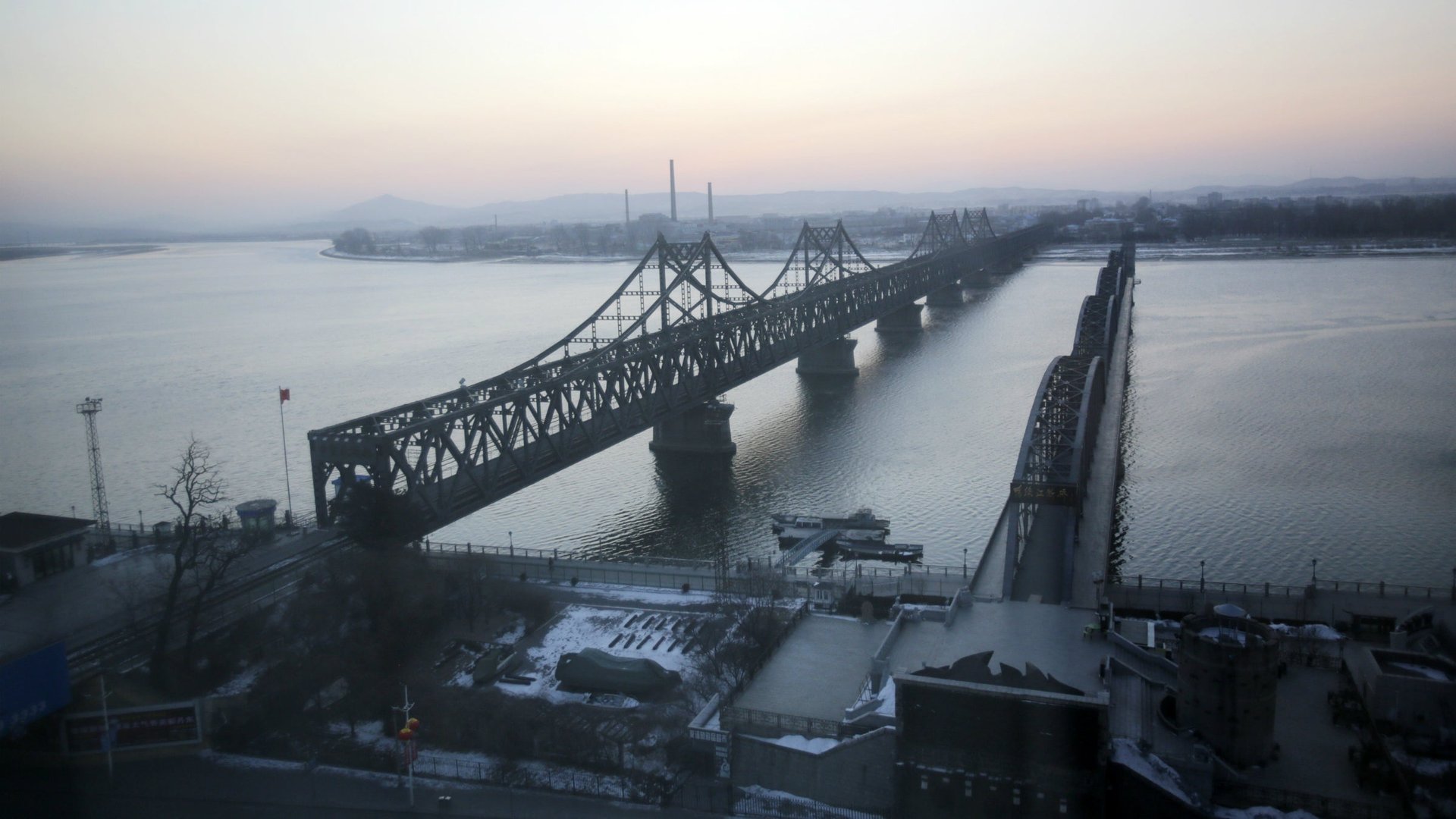On the border between China and North Korea, the trucks still queue
Nuclear war? Stepped up sanctions? For all the rhetoric and drama of the past few months, for Chinese traders at the border with North Korea, it’s still business as usual.


Nuclear war? Stepped up sanctions? For all the rhetoric and drama of the past few months, for Chinese traders at the border with North Korea, it’s still business as usual.
“Look at all the trucks out there and you tell me if trade has slowed,” Chinese exporter Liu Mingjin told Reuters at the Dandong border post. “Customs may be taking a closer interest, but there’s no impact on trade whatsoever.”
Outwardly, China does appear to be observing a new round of sanctions imposed on the hermit kingdom. Checks have been stepped up at the border, pushing up rice prices, and since North Korea’s most recent nuclear test in December, first quarter shipments from China fell by 13.8% to $720 million. Imports from the North were up 2.5% to $590 million.
China, arguing that its openness to Kim Jong-un’s regime gives it greater influence than Western powers, has not balked from trade with its nuclear neighbor. Using loopholes in sanctions allowing for economic development and humanitarian assistance, Chinese companies have been able to move goods back and forth—even silver and jewels. Nor is official trade the whole story, as there have been numerous reports of smuggling in both directions.
According to data compiled by NKNews, trade between China and North Korea has climbed each year since the millennium, with the exception of a slight dip in 2009 (when there was another nuclear test). Bloomberg reports that bilateral trade accounts for 70% of North Korea’s global total but only 0.1% of China’s.